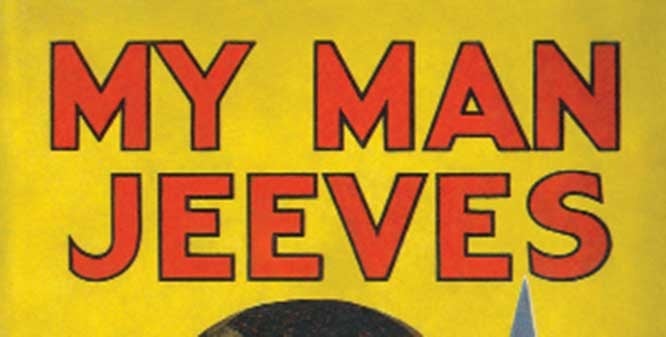

Dear all,
As a child of the 1960s, I grew up as an avid reader of English fiction -- devouring first Enid Blyton and Richmal Crompton and P.L. Travers and Michael Bond and then moving on to the repertoire of Agatha Christie, Daphne du Maurier, Edgar Wallace and P.G. Wodehouse.
Wodehouse in particular was a delight: his books were just plain laugh-out-loud funny. They were set in the world of dim and eccentric aristocrats and peopled by characters such as the foolish Bertie Wooster and his manservant, the inscrutable Jeeves, who was considerably sharper that the rather dim Bertie, all sorts of independent young women and lovesick young men, loud American millionaires and an array of rather memorable country house relatives, like Bertie’s formidable Aunt Agatha… (everybody has one!)
The thing about P.G. Wodehouse was that you turned to his work when you wanted to laugh -- it never failed to do the trick. But there seems to be no modern day equivalent of this comic novelist. I can think of nobody who I look to now for what I wanted from Wodehouse: fun and entertainment and a humorous plot.
Many people, who grew up as avid readers of fiction, now read less. My own theory is that this is not just because of the digital revolution and the way technology has changed the world but because contemporary fiction has become so very ponderous and self-conscious. For over a decade, I have been finding the shortlists of prestigious literary prizes very tedious: many of the works are books that are fairly pretentious and, quite frankly, very boring to read.
Today’s so-called ‘important writers’, a favourite marketing term for quotes featured on book covers, might often be tackling profound themes and issues but if their prose is unreadable why must I, the reader, suffer? This is a question I often ask as I plough through novels that are not enjoyable to read but which I feel I should read as I am told they are ‘important’ contemporary works. But enjoyment is key to reading for pleasure and I am finding it increasingly difficult to locate enjoyable and especially humorous books.
Apart from Wodehouse, the novelists that make me laugh, and thus cheer me up no end, include Sue Townsend (The Adrian Mole books), Helen Fielding (Bridget Jones) and Evelyn Waugh (Scoop is especially good), but now when I want some good comic fiction I do not know who to turn to and the search proves to be done fairly randomly.
Part of the reason is that the classification of a comic novel has become rather broad: an example is Gail Honeyman’s book Eleanor Oliphant is Absolutely Fine being featured on the list of Amazon’s ‘Best Sellers in Humourous Fiction’ list. This book is really the best novel that I read last year and even though it deals with relevant contemporary issues (loneliness in modern day societies, dysfunctional families etc), it is free of literary pretension and affectation and is very touching and also often quite funny. However, it is not a funny or comic book and hardly qualifies as ‘comic fiction’.
It seems that comic fiction or farce as a genre is quite out of fashion in this century. And although much Chick Lit, such as the Shopaholic series of novels, revived it slightly, the truth of the matter is that it is not really appreciated or promoted enough and the worth of the author is not recognised (Townsend’s work, for example, is brilliant yet very underrated).
These days I have decided to return to reading for pleasure, rather than forcing myself to plough through novels marketed as ‘important’, whose authors are praised to the high heavens even though much of the prose is unreadable.
Here I can admit that in any Rushdie novel I have ever read, with the possible exception of Shame, I have had to skim or skip through many tedious and largely self-indulgent passages in order to get through the book.
So here’s the thing: we need to appreciate humour a bit more. Possibly the rise of political correctness has had an adverse impact on this genre but we need to be able to appreciate wit no matter who it satirises or portrays. We live in a world that seems to have gone mad, a Trumpian landscape of ‘media conspiracies’ and intolerance, a Brexit environment of absurdity and isolationism…
I for one want a bit of laughter and humour in this world, and I certainly want to enjoy reading again.
Best wishes